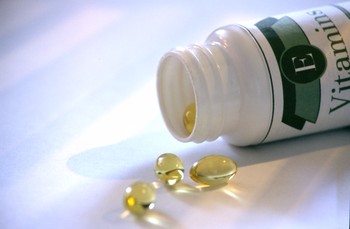Mar 15 2005
 50 years of research into the supposed benefits of taking vitamin E has extolled its antioxidant potential to offer a variety of potential health benefits, including reducing the risk of Alzheimer's, cancer and heart disease.
50 years of research into the supposed benefits of taking vitamin E has extolled its antioxidant potential to offer a variety of potential health benefits, including reducing the risk of Alzheimer's, cancer and heart disease.
Now a new study, Heart Outcomes Prevention Evaluation - The Ongoing Outcomes study (HOPE-TOO), published this week, contains unexpected and worrying issues with vitamin E and heart health.
The study unexpectedly found patients over age 55 with heart disease, stroke or diabetes plus at least one other cardiovascular risk factor, who took vitamin E supplements, experienced an increased risk of heart failure but cannot be confirmed at this time by other trials. This confuses the debate as two previous studies in 1993 and 1996, came to the opposite conclusion.
The Cambridge Heart Antioxidants Study (CHAOS) concluded there was a decrease in deaths from heart failure in participants taking vitamin E supplements who had coronary artery disease. The Vitamin E Consumption and the Risk of Coronary Disease in Women study, conducted by Harvard, evaluated more than 80,000 nurses and found a 41% reduction in the risk of heart disease in nurses who took vitamin E for two years.
Dr. Ishwarlal Jialal, M.D., Ph.D., Robert E. Stowell Endowed Chair in Experimental Pathology, Director of the Laboratory for Atherosclerosis and Metabolic Research and Professor of Internal Medicine and Pathology at UC Davis School of Medicine is cautious about these latest findings and says it is not backed up by other research. He says further studies need to be undertaken on the effects of vitamin E and heart disease and until that occurs, the results are questionable. In a previous study, the same HOPE-TOO investigators found in the sub-group of diabetic patients "there were no significant differences between the study groups in the rates of all secondary outcomes which included heart failure and hospitalization for heart failure".
Vitamin E, is a fat-soluble vitamin, which acts as an antioxidant to protect cells in the body against the effects of free radicals, potentially damaging by-products of cell metabolism. Dr. Jialal concluded the scientific community should conduct long-term, large scale trials in well-defined populations to continue to understand the benefit of vitamin E as well as any potential adverse effects.